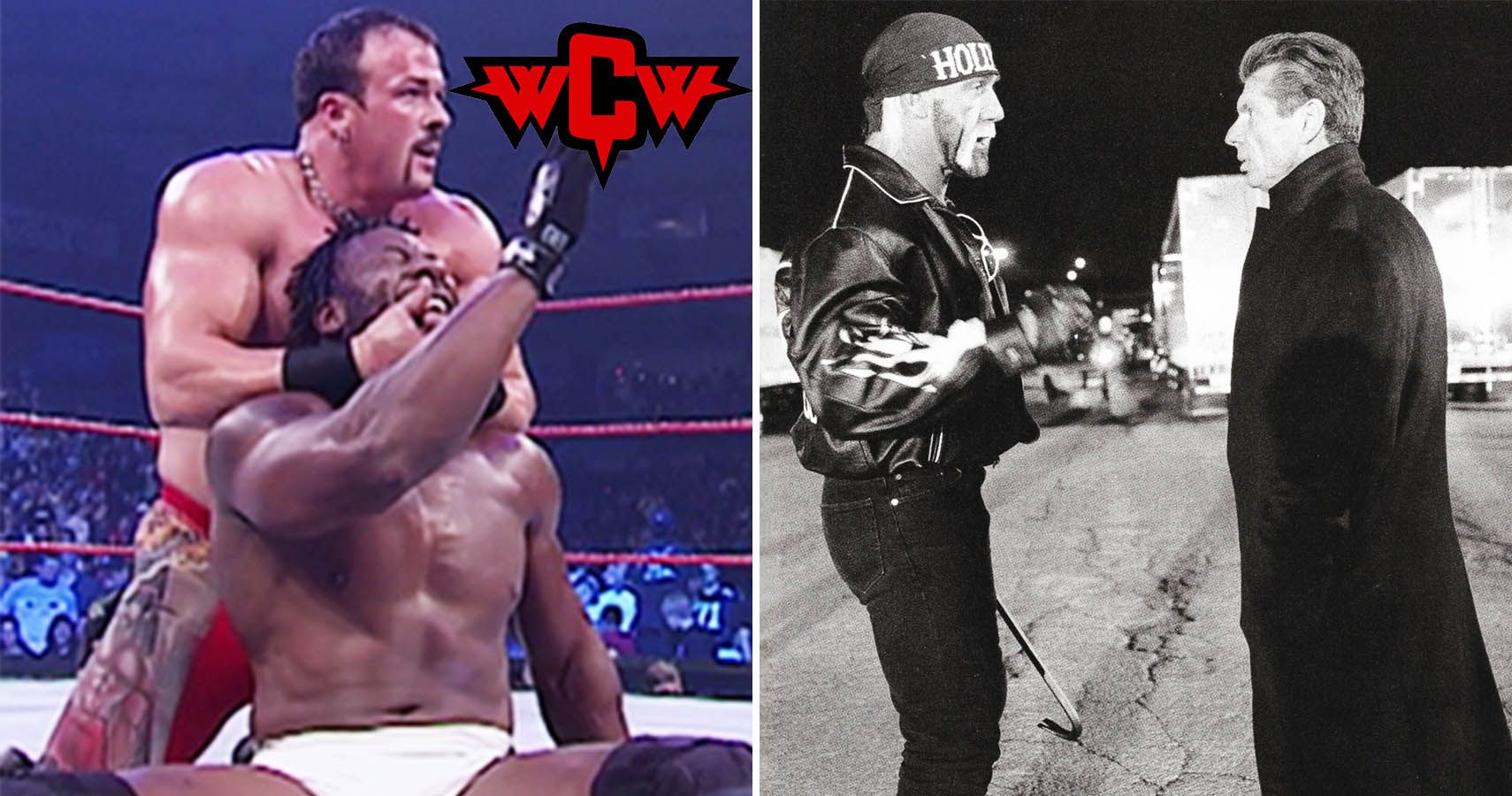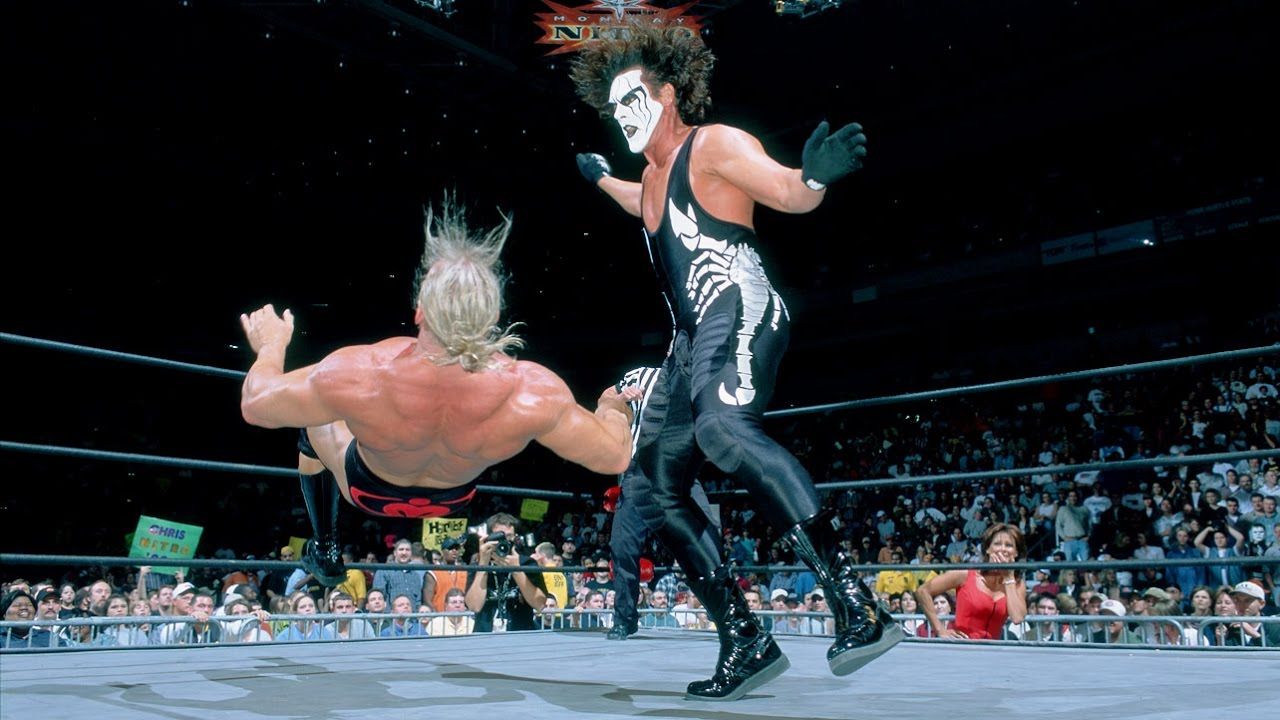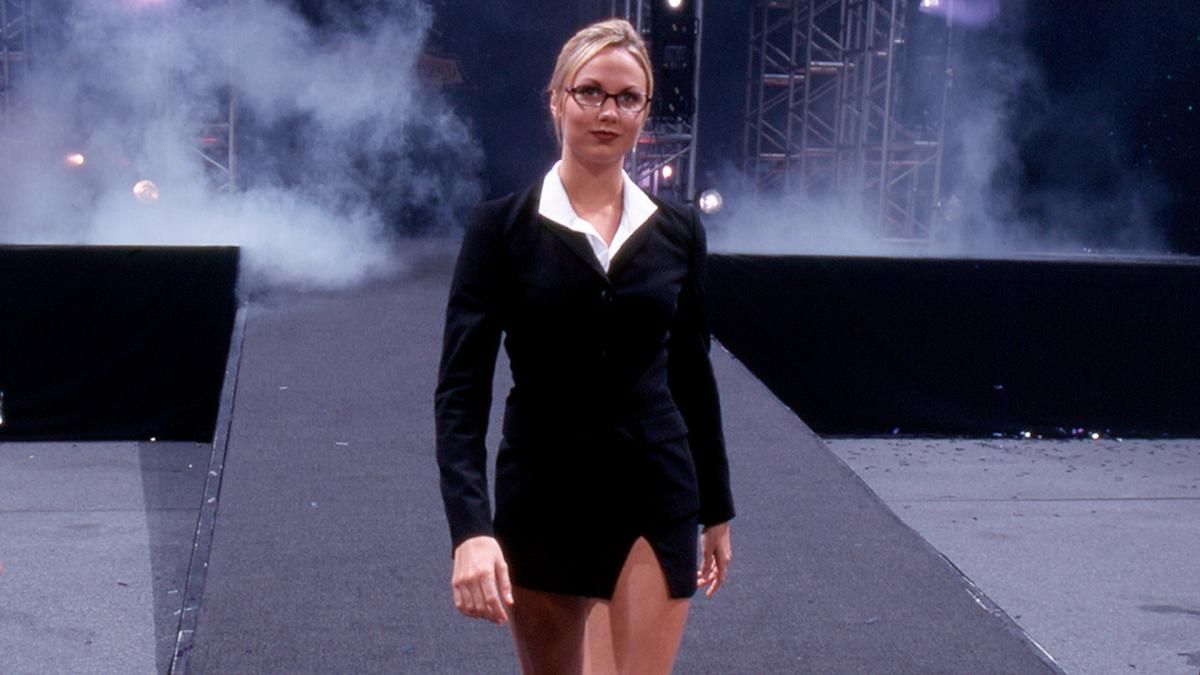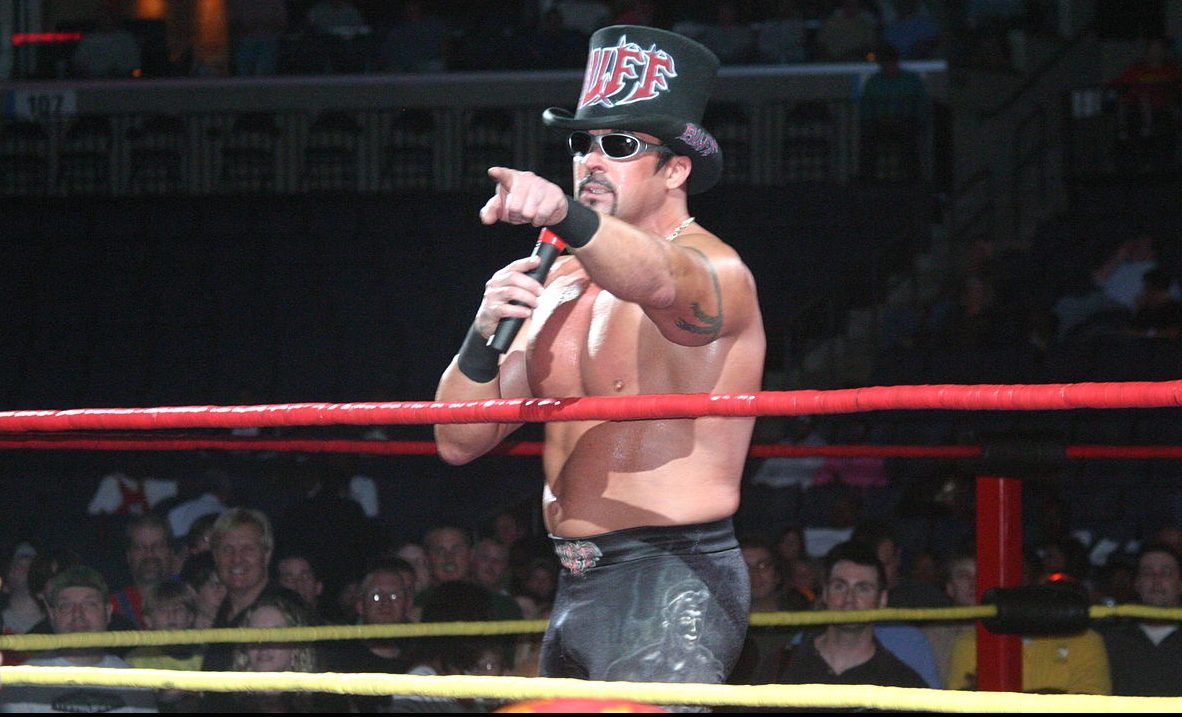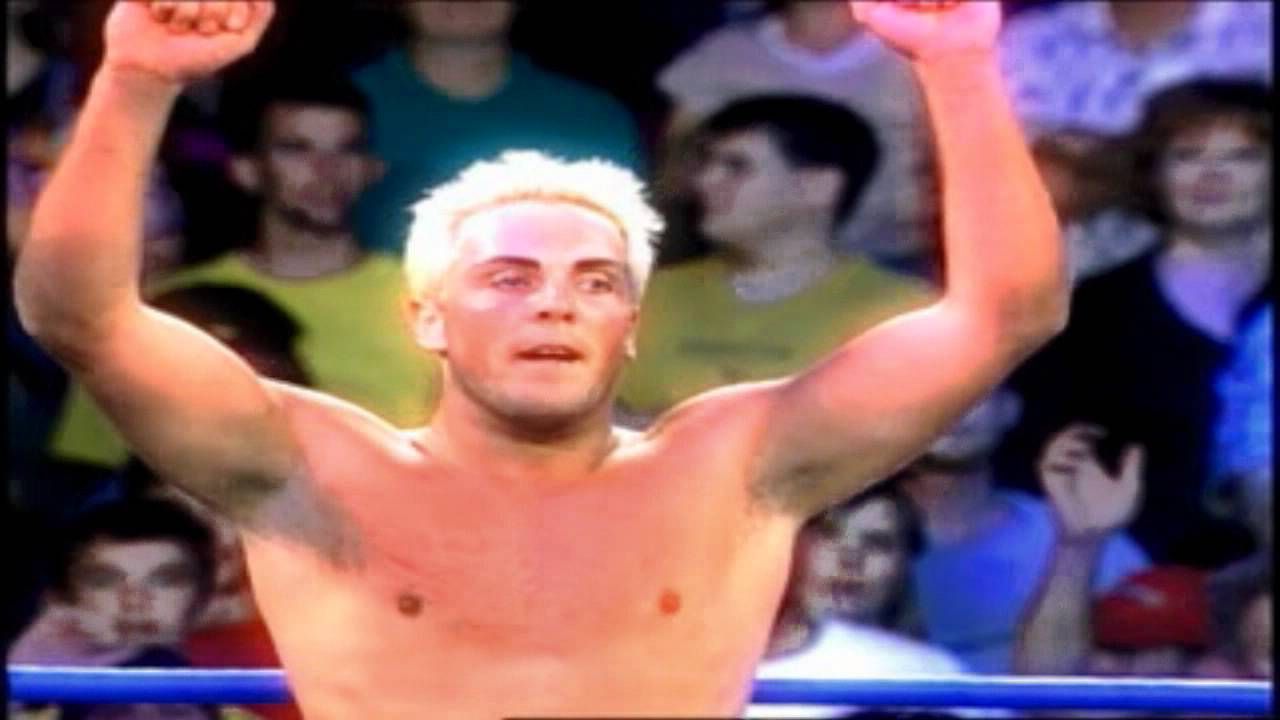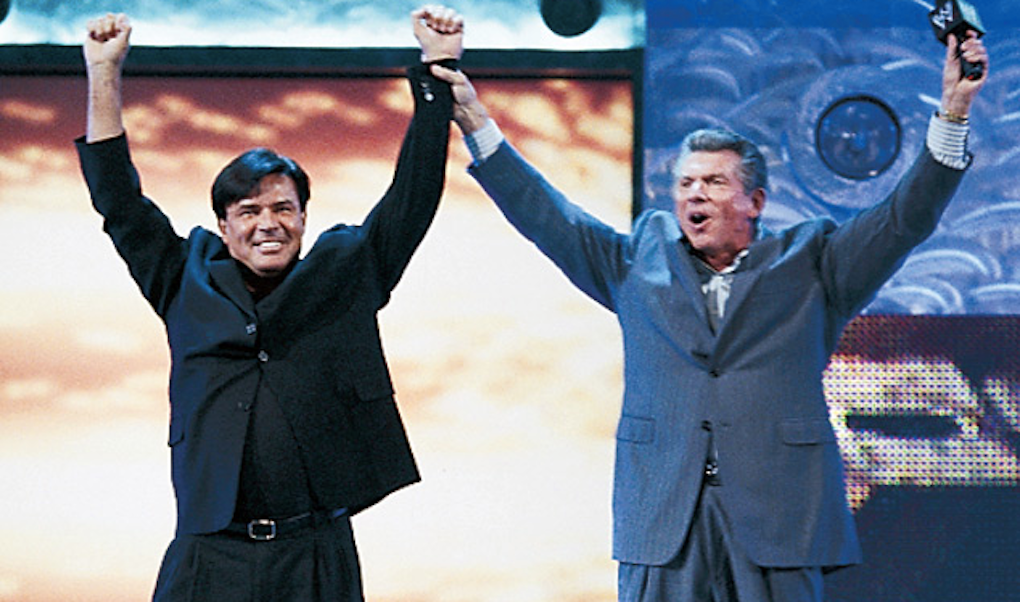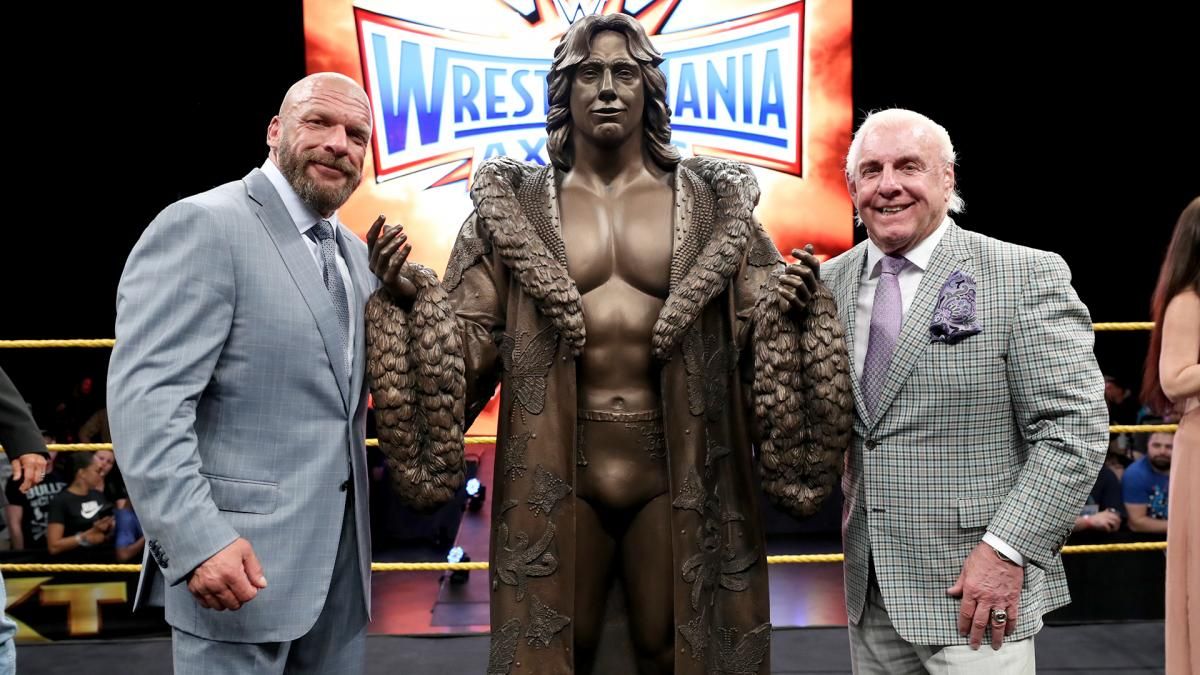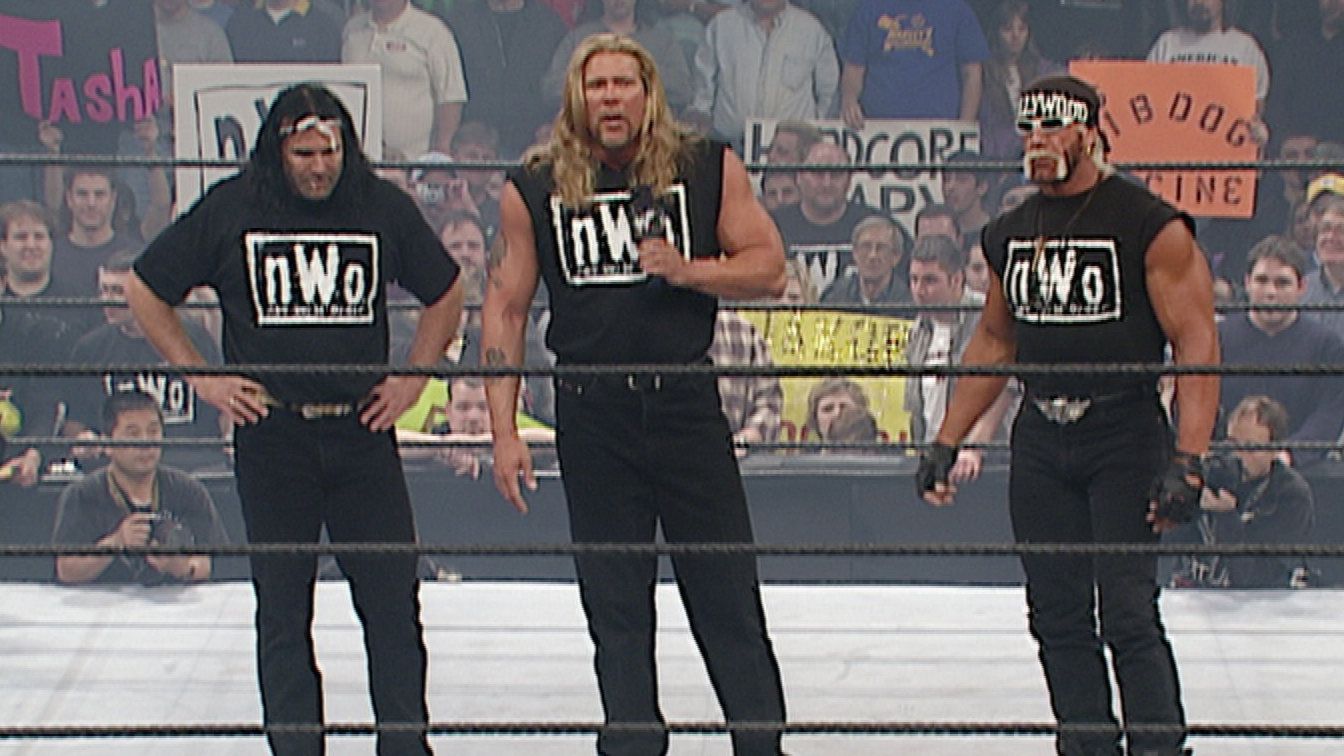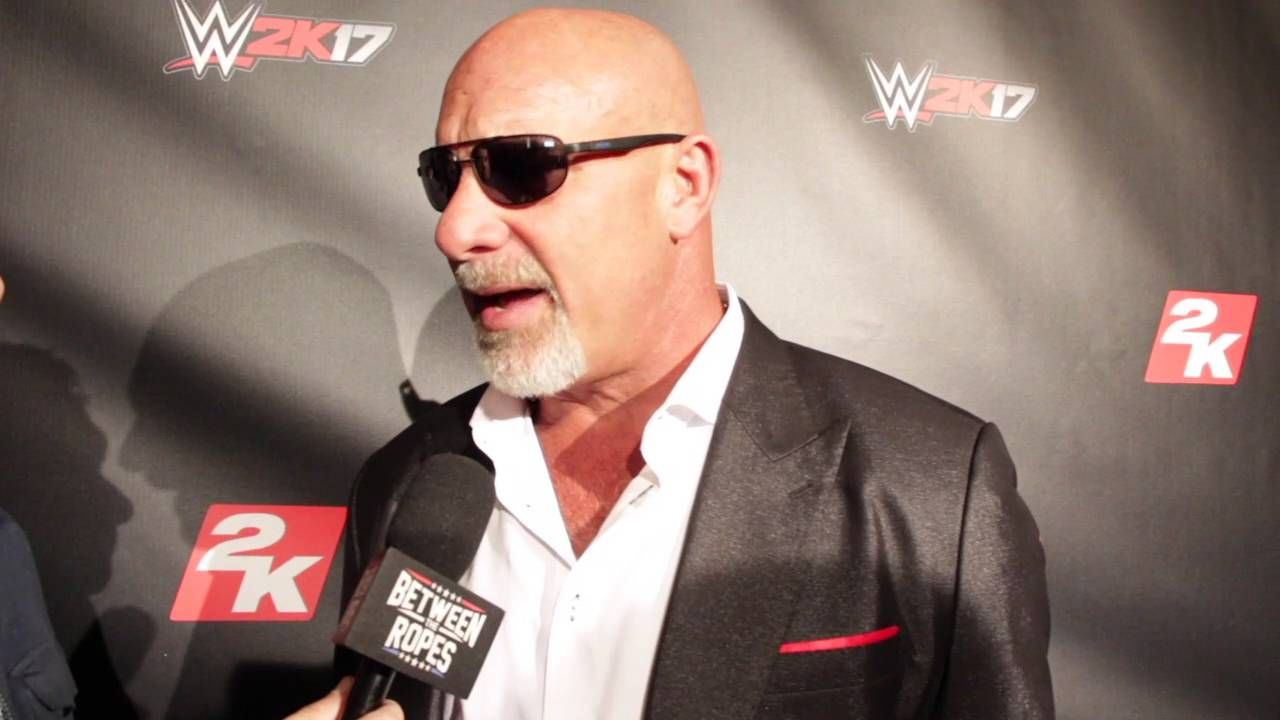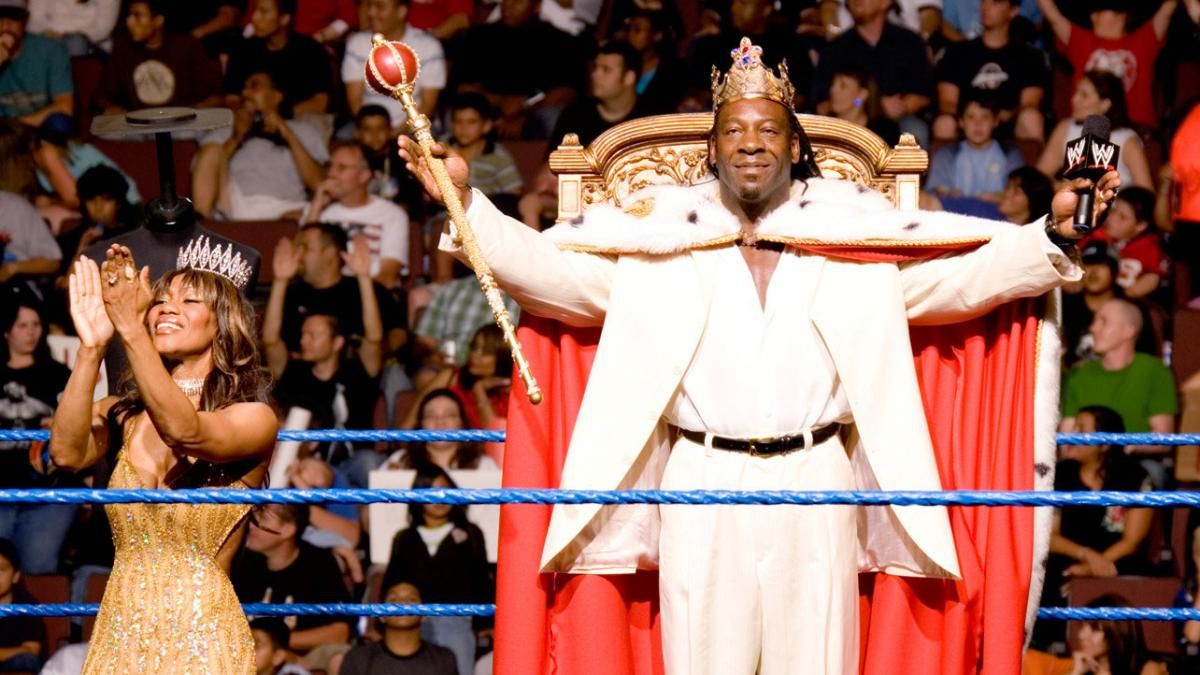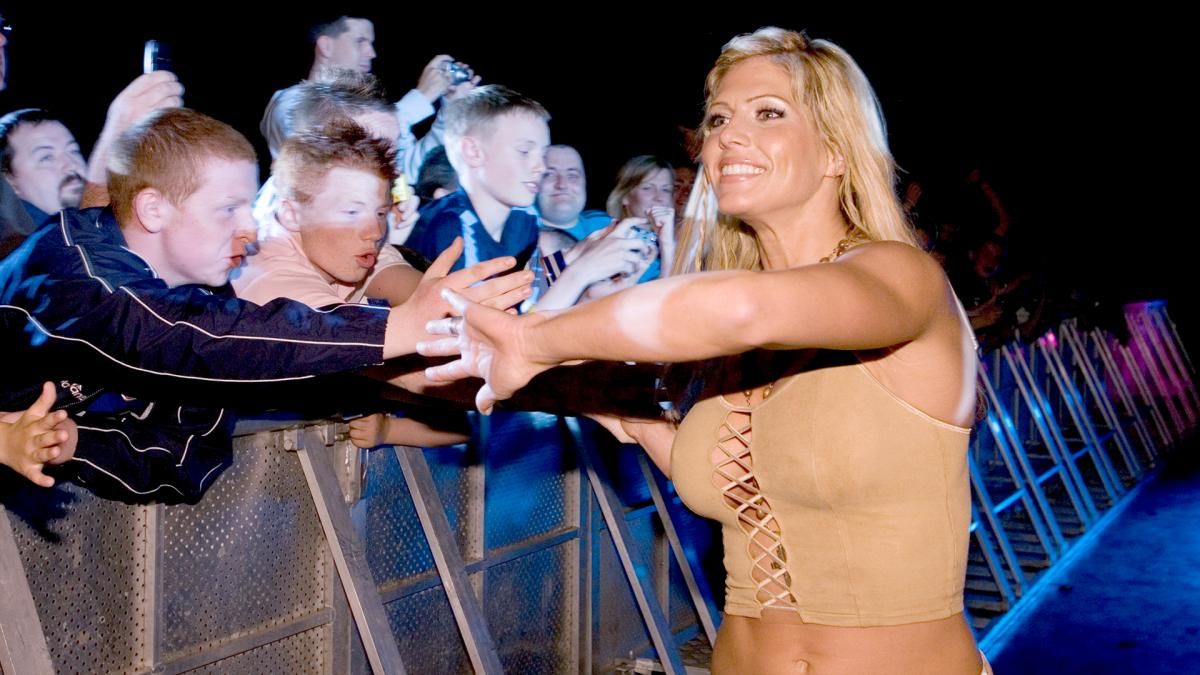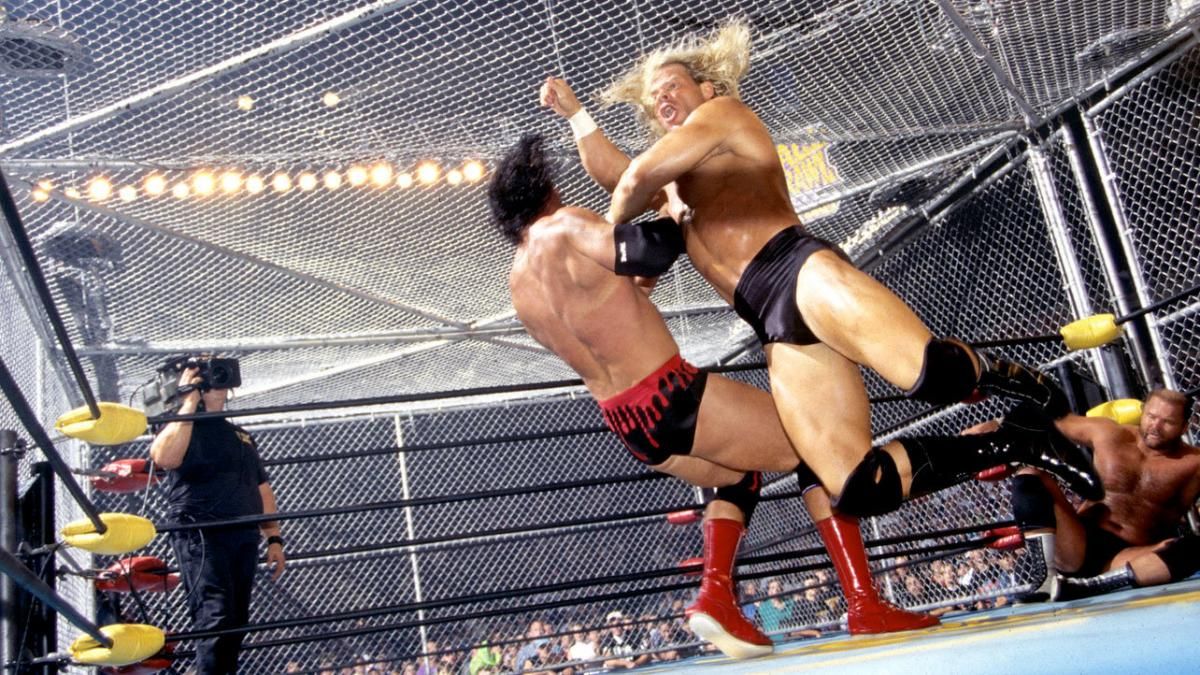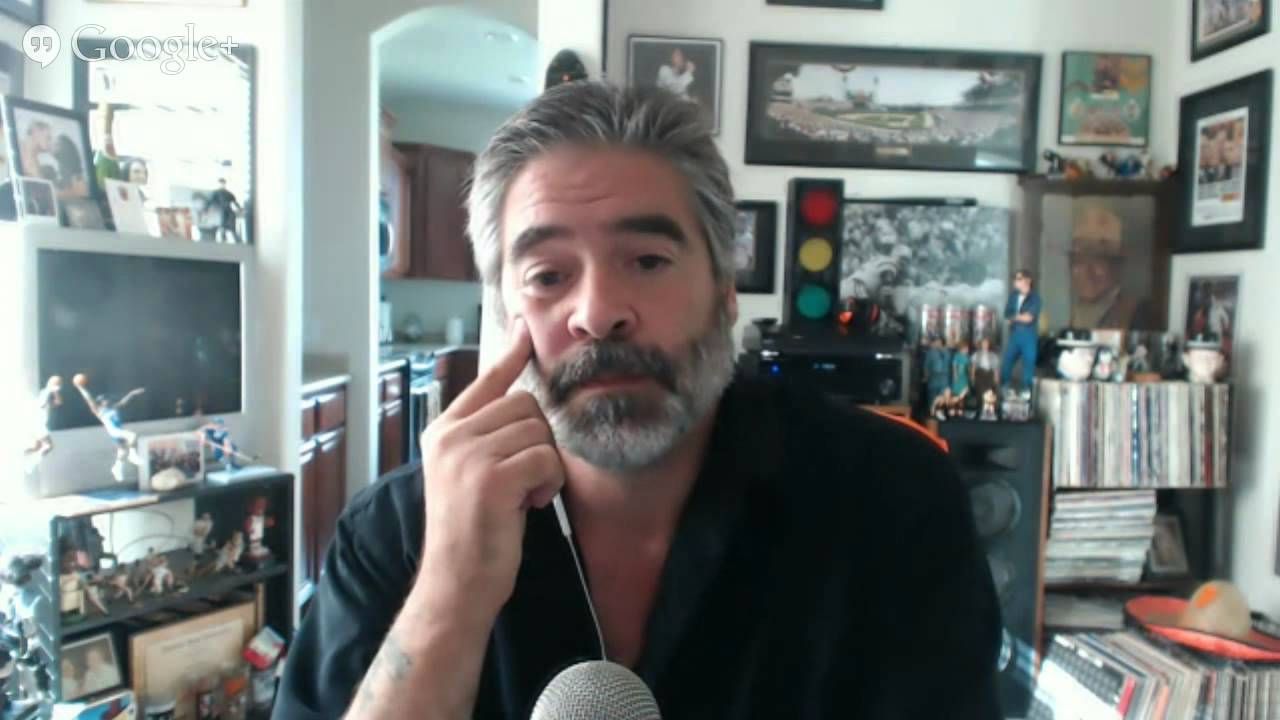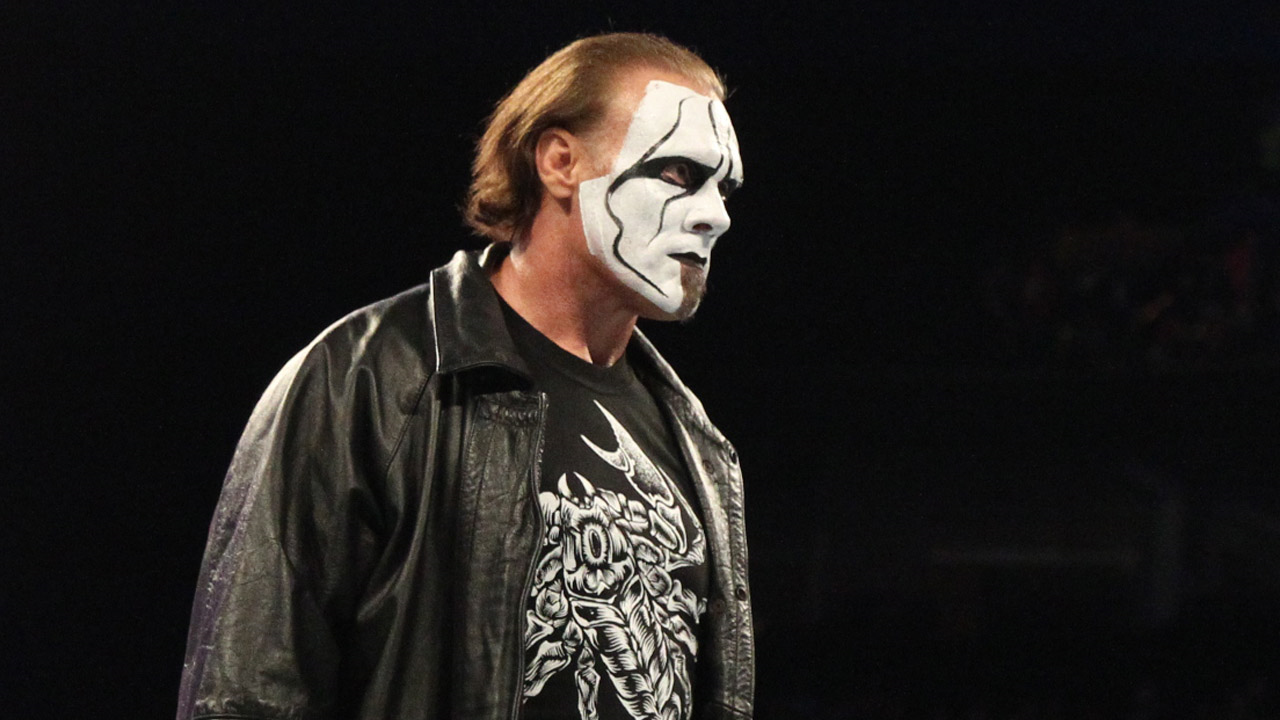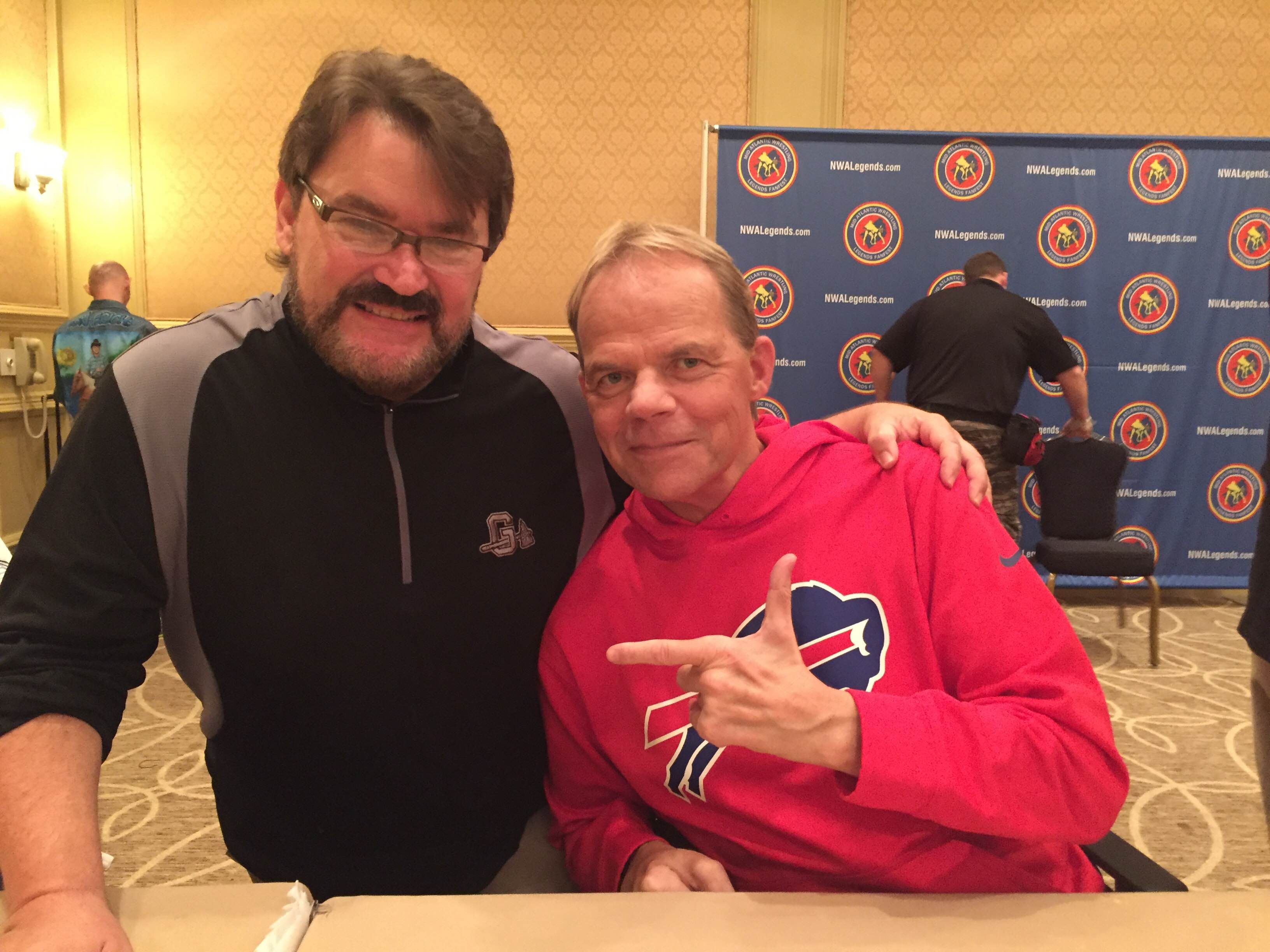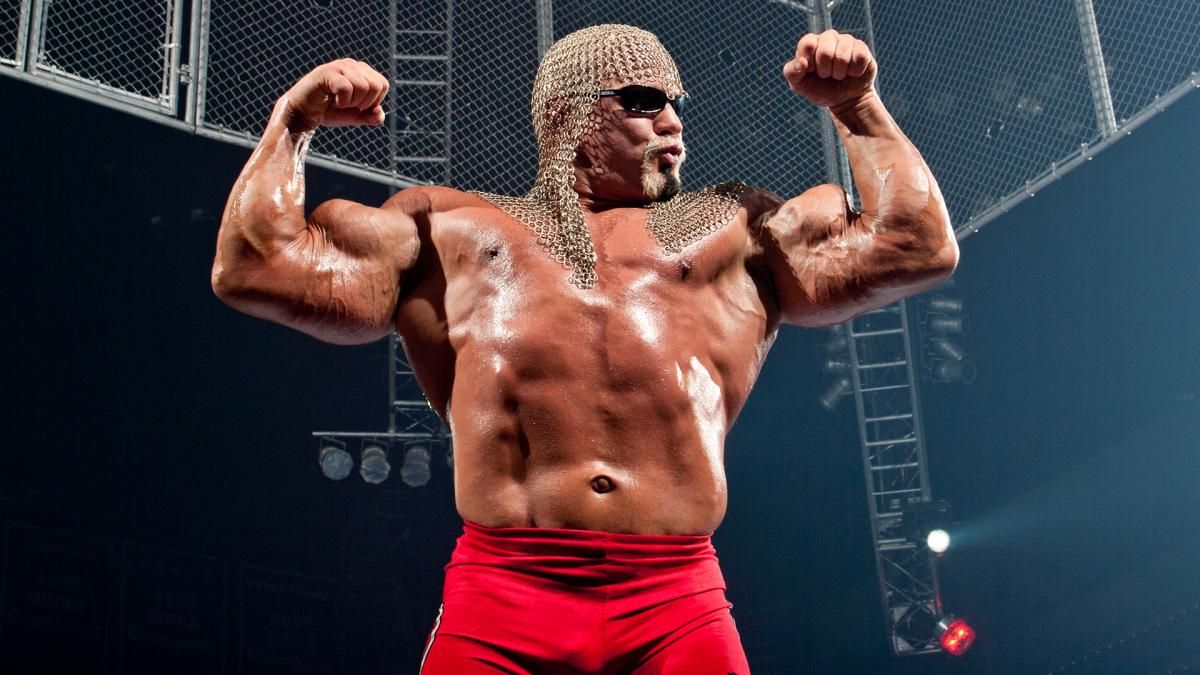The Monday Night War marked one of the most famous, successful periods in professional wrestling history. While fans may have different tastes, and we can debate the quality of programming and appropriateness of some of what happened, both WWE’s Raw and WCW Nitro drew remarkable ratings during this period, cumulatively attracting consistent viewership unparalleled from any other era in wrestling history. While each promotion was its peak in terms of depth of roster and generating provocative storylines, the period was also marked by the sheer excitement of competition. What might DX or the nWo do to outperform the other? What would Vince McMahon or Eric Bischoff resort to in reality? In kayfabe? Moreover, there were those stars who jumped ship during the war, including Chris Jericho, The Big Show, and The Radicalz making their way from WCW to WWE, and guys like Lex Luger, Rick Rude, and Madusa making shocking overnight leaps to the competition in WCW.
In spring 2001, after nearly six of years of trading ratings victories and all manners of crash TV booking, the war came to an abrupt end. WWE bought WCW, and in a historic moment, Vince McMahon appeared on the opening of Nitro to announce his acquisition. That night’s TV would all become part of his kayfabe rivalry with his son Shane, before WCW stars were truly integrated into the WWE product.
But what of the aftermath of the Monday Night War? Plenty has been said, but what of those stars who disappeared, either for a time or in perpetuity? And what of the unusual behind the scenes business choices made? This article looks at 15 things you didn’t know happened after the Monday Night War ended.
15 15. WWE Really Did Try To Relaunch WCW
The general consensus is that WWE’s incorporation of WCW talent, from the InVasion angle to the long term trajectory of any talents who had made their names in WCW, was that it was a failure and that WWE may not have been that interested in ever seeing WCW talent succeed. However, according to a wide variety of sources, WWE actually did intend to promote WCW as its own separate brand, much like the way it currently promotes Raw and SmackDown as individual rosters and products.
The trouble was that after WCW saw its ratings sink toward the end of the Monday Night War, and Time Warner reject the product, television networks were not interested in airing a WCW branded show. Add on the failure of the only match WWE branded as a WCW one, between Booker T and Buff Bagwell on Raw, and they hadn’t won over any supporters. The idea of continuing to promote a WCW product was more or less dead in the water from that point forward.
14 14. Stacy Keibler Was Told Not To Worry
The end of the Monday Night War was a nerve wracking time for a lot of wrestling talents. Would WCW stars have jobs? Would mid to lower card WWE guys keep their roles with a huge in flux of talent? Amidst the questions and turmoil, Stacey Keibler was not worried—WWE reached out to her very early on to let her know WWE had plans for her.
While Keibler was never really a breakout star for WWE, continuing to have a national platform and opportunities to let her beauty and sex appeal speak for themselves helped to make her a crossover star. She went from WCW to WWE to a spin on Dancing with the Stars to becoming a full on celebrity who has done some acting and been involved in high profile relationships, most notably be linked to George Clooney for quite some time.
13 13. Jim Ross Gave Buff Bagwell The Cold Shoulder
In WCW, Buff Bagwell rose from the tag ranks to being a memorable heel performer, known for his physique and his cocky mannerisms. A lot of fans thought that his personality and look would carry him far in WWE, but unfortunately he only got one match in the company.
Yes, his infamous match with Booker T stunk out the joint, and no Bagwell wasn’t necessarily a gifted performer. In a number of shoot interviews and podcasts, Buff Bagwell has spoken up about the struggled based on political battles within WCW. While Jim Ross has spoken out about Bagwell’s mother calling in sick on his behalf, Bagwell claims that this never happened. He also said that, after WWE let him go, Ross asked him to get in touch in a few months, and that when he did, JR gave him the cold shoulder, implying that Bagwell was bothering him. Needless to say, Bagwell was never seen in WWE again, and isn’t exactly holding his breath on a Hall of Fame induction.
12 12. David Flair Got A Shot With WWE
Before Charlotte Flair broke out as a superstar, and before Reid Flair looked like a rising star, it was David Flair who was the first of The Nature Boy’s children to give wrestling a shot. He was thrust onto WCW television to get heat on the New World Order for beating him up to get at Ric, and then became a regular on screen talent as a wrestler from there, turning on his father and hanging around as a distinctive personality in the mid card from there. Throughout all of this, the guy was never fully, properly trained to be a wrestler.
David did get a shot in WWE’s developmental system, but never made it to the main roster aside from a few stand alone appearances alongside his father (most notably getting beaten bloody by The Undertaker in the build to WrestleMania X8).
11 11. Vince McMahon Called Eric Bischoff Personally
There is little disagreement about the fact that Vince McMahon hated Eric Bischoff during the Monday Night War. While Ted Turner may have put the money and resources behind WCW, Bischoff was largely steering the ship in terms of creative direction and business decisions along the lines of spoiling results from Monday Night Raw on Nitro.
In his WWE produced documentary, however, Bischoff recalled that after the dust had settled from the War, Vince McMahon gave him a phone call personally. McMahon indicated that, had WCW won the war, he’d have hoped that he might find a job there, and he wanted to extend the olive branch in similar fashion. Bischoff was offered an on screen character role only, not a position with any creative or executive power, and performed nicely in that capacity for a period of years.
10 10. Triple H Reinstated Confidence In Ric Flair
Ric Flair has spoken out in a variety of interviews about how dismal the finals years of his time with WCW was, in particular for his character’s creative direction and his political clout spiraling downward, and legal issues with the company.
Fortunately, Flair still had some powerful supporters in the ranks of WWE. Flair has cited Triple H in particular for helping him get his confidence back, working with The Nature Boy as both an opponent and partner to help him re-attain some of his old glory in the last chapter of his career. Triple H seemed all too happy to have a part in helping Flair, citing him as an inspiration for him to get into the professional wrestling business in the first place.
9 9. The WWE Roster Wasn’t Happy When The New World Order Arrived
After the dust had settled from the lukewarm InVasion angle, WWE pulled on a different thread from WCW—the New World Order.
The nWo had been a key part of what made WCW so successful and allowed it to temporarily surpass WCW in the ratings for over a year in the late 1990s. The stable, and WCW’s reliance on it, had also arguably led to the company’s demise and they rested on their laurels with the heel super group too long at the expense of building new stars or fresh angles. The creative limitations of the group, in addition to word about how difficult Hulk Hogan, Kevin Nash, and Scott Hall could be to work with politically meant that a number of WWE performers were outraged when Vince McMahon brought the group to WWE.
While the inmates purportedly ran the asylum in WCW, WWE, to its credit, was more firmly controlled by McMahon who kept control over the three controversial stars. While the nWo never exactly caught fire in WWE, it was a fun enough source of intrigue for a few months, besides reintroducing Hogan to the audience and setting him up for a memorable nostalgia run as a face.
8 8. Goldberg Didn’t Like Working For Either Company
Goldberg is one of the few talents who, despite just a few short years with WCW and even less time with WWE nonetheless became an iconic main event figure and world champion for both promotions.
The uncomfortable truth? Goldberg didn’t like working for either company.
In a number of shoot interviews, Goldberg has commented on disorganization in WCW where there were too many cooks in the kitchen working at cross purposes with each other and things changed on a dime. He’s spoken about WWE being more organized, but not entirely in positive ways, suggesting that he felt micromanaged there, and that the people in power had big egos. Whether it was strictly business, or he since mended some fences, Goldberg got along well enough with WWE to come back for a run from 2016 into early 2017, including winning the Universal Championship, but no one should expect him back as a full time talent.
7 7. Booker T Stood Up To WWE Agents
Booker T has commented in a number of interviews on the fact that he was the lone top WCW talent to really go on to a sustained, successful run with WWE. It’s true that no one else with Booker’s WCW longevity and main event status would go on to an even longer career with WWE that truly improved upon his legacy, including reinventing his character and earning another world title reign.
Booker has discussed that one of the keys to his success was standing up to WWE agents. He claims WCW guys were set up to fail, and when he recognized that he went straight to Vince McMahon, suggesting that he do things his way. Rejecting bad input from agents, and sticking with what he knew worked, Booker developed an excellent second half to his career, including memorable work as a face and some of his best work ever in the King Booker persona.
6 6. Torrie Wilson Called WWE Personnel Much Nicer Than WCW’s
Torrie Wilson got her start with WCW, booked as a beautiful valet who lured David Flair into the nWo ranks, to betray his father. While plenty of people in wrestling have been vocal about WWE being better organized, having better creative, or having better business sense than WCW, Torrie Wilson presented another take on it. She said WWE’s personnel was nicer.
It probably doesn’t hurt that Wilson was still a bombshell when she made the move from WCW to WWE, but she claims that when she made the transition, her new colleagues and supervisors in WWE were fundamentally kinder people than the ones she worked with in WCW. In particular, she’s cited that trainers in WCW were rough with the women, without really properly training them for success in the ring while, WWE’s personnel was a lot more pleasant.
5 5. Triple H Tried To Bring Back War Games
War Games was one of the most iconic match types in WCW, born out of the NWA tradition. With two rings encased in a big steel cage, staggered entries, and the guarantee of a brutal submission or surrender, the match was a standard bearer for violence and intensity in its day. As a student of wrestling business who hasn’t hidden his passion for old Jim Crockett Promotions programming, Triple H purportedly advocated for bringing War Games to WCW in the early 2000s.
The idea never came to fruition, with Hell in a Cell and, more to the point, The Elimination Chamber largely taking up the mantle of the old match type for their impressive cage structures and, in the latter case, the staggered entries into the bout. Traditionalists, may not appreciate these matches quite as much, but can find some solace in WWE ultimately releasing a DVD compilation of War Games matches, in addition to making them almost all available via the WWE Network’s on demand library.
4 4. Selected Individuals Were Blacklisted
For as heated as the Monday Night War was, I don’t know that anyone would have been surprised had WWE blacklisted WCW talents en masse. Vince McMahon has always indicated that he puts business first, though, and that principle seems to have held up as WWE welcomed in a variety of talents who’d made their name or at some point defected to WCW. That included guys like Booker T and Rey Mysterio for longer tenures, as well stars like Scott Steiner and Sting to cash in on old WCW fans at different points in time.
While some parties were forgiven quickly, and others took time, like Alundra Blayze finally being forgiven for dumping the WWE Women’s Championship in a trashcan, others have not been so lucky. It wasn’t until after he passed away that WWE meaningfully acknowledged Randy Savage again, though he did at least get a Hall of Fame induction posthumously. Other names haven’t been, and probably won’t be so lucky. For all the main event and business credentials he’s accumulated since, Jeff Jarrett was still just a mid carder for WWE and more importantly one who once held up Vince McMahon for money. Vince Russo was the creative contributor who left WWE high and dry when WCW came calling. Talents like this were blacklisted and there’s no reason to expect WWE will ever let them back in the fold.
3 3. Sting Thought WWE Would Ruin His Legacy
There came a time when fans all but gave up on the idea of Sting coming to WWE. Thirteen years passed between him working the final match in WCW history and making his first appearance on WWE television at Survivor Series. Why the delay? And where was he in the interim?
Sting plied his trade in TNA for a period of years, as the franchise player who helped the company get better TV deals and investors. He commented later in a visit to the WWE Network’s Legends with JBL about some of his hesitation to sign with WWE coming from concerns about what the company would do to his legacy. After all, he’d looked on as Scott Steiner tanked with the company and as Goldberg became, over the course of the year, just another upper card guy. He saw Diamond Dallas Page go from one of WCW’s most over homegrown star of the Monday Night War era to jobbing out hard in a program with The Undertaker before getting demoted to the mid-card.
Sting would ultimately put his faith in WWE and have a brief run of just two PPV and two short TV matches for WWE. Ironically, some of his fears may have been founded in losing both of his spotlighted PPV efforts, but he nonetheless also got featured prominently, respected, and ultimately inducted into the WWE Hall of Fame.
2 2. Tony Schiavone Thinks He Got Blacklisted
Tony Schiavone was, in many ways, the voice of WCW in its heyday. In particular after Jim Ross left for WWE, Tony Schiavone was more often than not the de facto top play-by-play man for WCW and was quite good for a number of years. While he gets flack for his work during the Monday Night War—often hyperbolizing a little too much but, to be fair, just following orders from backstage.
In a recent visit to Jim Ross’s podcast, Schiavone theorized that he’s been blacklisted by WWE. He referenced that he expressed interest in a producer job with the company, only to be told there was no need for announcers. When he tried to clarify what he was trying to do, felt the door was closed in his face. Despite reassurances and a more positive message from Ross, Schiavone seemed pretty certain that he was not welcome by WWE management.
1 1. Scott Steiner Wants No Part Of The WWE Hall Of Fame
While a number of WCW alumni didn’t exactly thrive under the WWE banner, few tanked as memorably or harshly as Scott Steiner. Big Poppa Pump came in to work an early 2003 feud with Triple H, for which their most featured match at the Royal Rumble turned ugly, with Steiner getting gassed and looking particularly horrible in the late stages of the match. While he would linger in the main event scene for one more show, he was demoted to the mid-card for the rest of his WWE tenure.
Steiner has pulled no punches since in bashing WWE and particularly Triple H on social media and interviews. He’s repeatedly indicated that he has no interest in being inducted into the WWE Hall of Fame, suggesting it’s not an honor at all but rather an arbitrary show that WWE puts on each year, and that’s particularly meaningless for not having a physical location.

